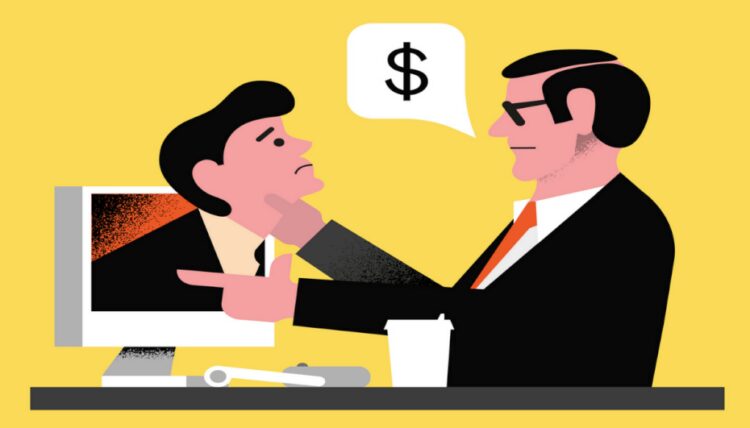Admit it, at some point in your life, you might have taken a loan or a credit to get something done. And it is pretty normal for people to do this, as it is convenient and gets the job done. Whether it was a student loan or a debt to pay your outstanding bills, these credit facilities come in handy and make life quite easy and bearable. However, there is one dark aspect to this as well, the collection part. Debt collectors are one of the most infuriating tasks ever, hence the people asking for the money back are quite rude and judging usually.
If you are running behind on your schedule or if you are supposed to pay someone back, then there is a very high possibility that you would be or have already been contacted by someone or some people claiming to be the debt collection guys. These collectors are notorious for their bad behavior and intimidating touch, and usually leave people feeling overwhelmed. But you need not worry as there are many debt harassment attorneys available who would be more than happy to help you fight these collectors off, and that too legally.
Yes, it is possible to keep these collection officers at bay. They are there to procure their money back. However they cannot threaten you, or make you feel unsafe. And usually, people are not aware of such basic rights which are put in place for their own protection. But do not worry, as the following article would deal with a few of the basic rights that you should know whilst dealing with these debt collectors:
1. You Can Make The Creditor Stop Contacting You

Yes, you read that right. A creditor is the person of the firm that lent you money. And sometimes, these creditors become quire pressed with the fact that people still owe them money. They feel they are entitled to harass their clients by continuously trying to contact them, asking and reminding them about their due date and balances. However, if you ever feel that it is enough, and you cannot keep up with them contacting you, then you can send in a written letter asking them to stop contacting you. It is as simple as that.
However, this does not mean that you get a free pass and are free of the credit. You still are required to pay all your dues. The creditor may also hire a credit agent firm to contact you on his behalf about the further proceedings, which you could not ignore.
2. You Are The In Charge

Ever since you took that loan, you became the unnamed in charge of the situation. The debt collectors might be intimidating, but remember that you have the major controls at the end of the day. They are not allowed to reach out to you at any time other than the business hours – 8 a.m. to 9 p.m.
Additionally, since this is also a form of business, they are required, by law, to maintain professionalism. Use of any slurs or profanity is not at all acceptable, and you could take them to court if you feel threatened.
Moreover, they cannot discuss your credit details with anyone at all. If you feel like they have, or if you know someone else also knows your credit details, you can file a complaint against the collector.
Just remember this one thing and it should do the trick. If you are not in a position to payback the whole sum, then send in atleast something, regularly. This would help in your records and make them look better than nothing.
3. Can They Get Me Arrested For Overdue Credits?

Technically, no, these debt collections agents have no role whatsoever and can not get you arrested for not clearing off your debts. Under the FDCPA, or the Fair Debt Collection Practice Act, these collectors are not permitted to ask for you, or any other person associated to their debts, to get arrested. Yes, they may serve you with legal papers whenever needed, and you are obliged to answer to them, even file a lawsuit. However, if you fail to do so, or deliberately choose to ignore, then a judge can actually get you locked up. It, therefore, becomes of highest importance that you answer to the legal notices and court orders whenever you are asked to.
4. Do Some Research

It is always advised to do some research before taking a loan or a credit. It is understood that you were in unfavourable circumstances and the conditions left you with no other choice. However, it still becomes very important to know the terms and conditions of the creditor or crediting firms, their previous relationships with other clients, their reputation in the market etc. Additionally, the laws, no matter how same they are, usually vary to some extent from state to state. Consult your attorney if you have doubts or queries regarding the legal aspects of your credit. If you have an attorney or a lawyer who represents you, let them talk to the creditor instead.
If you have cleared a debt and are still getting notifications about the overdue amounts, try to contact the debtor itself and ask them to clear your record. This wrong information could deeply impact your creditworthiness, causing troubles in getting a loan in the future.
Conclusion
Taking a credit solves most of the major needs and requirements of the hour, and is a good way of dealing with problems in grave situations. However, just because you owe someone money does not make you any inferior to them and you should not be tolerating any sort of ill behaviour from them whatsoever. Any sort of unprofessional behaviour should be promptly reported to the administrations. Know you rights and stand tall on your ground, as you have done nothing wrong. And also, do not forget to answer all the legally issued notices and lawsuits as quickly as possible.







